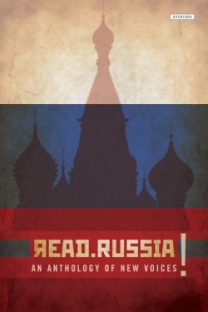
Drawing by Niyaz Karim
At the New York Book Fair, Russian publishers were allotted a spot between Saudi Arabia and Nebraska, which, regrettably, accurately reflects the perception of the average American: a boundless steppe with oil derricks sprouting up. The downside is that this ignorance holds back our literature, too. The upside, if I may say so, is that America treats the whole wealth of translated literature in the same fashion. Foreign books are just like subtitled movies: They are watched from time to time in New York, at festivals, and on university campuses. The situation is even more difficult with respect to literature, since Americans are only guided by their own Who’s Who.
Ever since Mark Twain helped American literature to its feet and Hemingway brought it to its full height, it has shown no regard for Europe. Sadly, Europe has been reciprocating for a long time now. The last American writer to be awarded the Nobel Prize was Toni Morrison in 1993, and I will never forgive the Stockholm elders for not giving the prize to Salinger.
Of course, there are exceptions. Foreign literature can create a buzz in the U.S., confirmed by the stir sparked among students by Marquez’s “One Hundred Years of Solitude.” Another one, already in my time, was “The Name of the Rose.” Umberto Eco, incidentally, was so esteemed that he was the first – and the last – person allowed to smoke in a lecture hall at Columbia University. Since then, only the famous Hogwarts student has been a hit, but Harry Potter does not really count.
American literature can be compared to a world championship in football only played in the U.S. Russian, or more precisely post-Soviet literature could then be likened to a game of Bandy, a type of hockey obscure to Americans and restricted to a very limited company of European neighbors.
Russia’s Literary Idols
Vladimir Sorokin is highly acclaimed in countries that have experienced totalitarianism–such as Japan, Austria and Germany. America has not yet come to appreciate him fully, although it has already discovered this complicated author with the publication of his “Day of the Oprichnik,” complete with reviews full of historical digressions. Another Russian literary idol – Viktor Pelevin – has had more than a flirtation with American young people who, not unlike young people elsewhere, prefer virtual countries to any others. But their paths have diverged. I still believe that America will rediscover Pelevin someday, for he explores the country in his work. This is why some puns in his recent works, the “Burning Bush” for one, cannot even be rendered into Russian.
Writing to or for Americans, however, is not a way out of the abyss. Genuine literature is written without any consideration for or concessions to the scope of the reader’s knowledge. The reader, in turn, is enriched. Exotic circumstances or times have hardly prevented anyone from loving Homer, or Sei Shōnagon, or Dostoyevsky, come to that.
It was the Russian traits and exotic ethnic personas of Dostoyevsky’s characters that brought him worldwide fame. Foreigners study the Russian character through Dostoevsky’s books (although we Russians may actually prefer Pushkin, who portrayed people as just people, without exoticism.)
In search for what they themselves lack, foreign readers scramble through the thickets of the Russian consciousness, all the while complaining bitterly about peculiarities, which allows the same person to be referred to as Grushenka and Agrafena Alexandrovna.
Despite the ordeal, Russia’s classical literature is still the most treasured resource, presenting Russia at its best and getting in the way of contemporary literature. One of the best translators in the United States, Antonina Bouis, wrote about this in a foreword to an anthology of new writers published for the fair.
 |
| Read Russia Anthology. Read the foreward by Antonina Bouis. Source: readrussia2012.com |
“Americans are used to reading about balls, officers, duels and revolutions in Russian books,” she writes knowingly. To break this not-so-bad habit, an American reader has to be familiar with Russian literature in its historical development, without the huge gaps that still hold foreigners back from appreciating the cosmic genius of Platonov; Olesha’s fine prose; or the never fading splendor of Mandelstam’s essay style.
To help Americans understand new Russian literature, as opposed to old literature, we have to find the missing links and have them translated well. This is why I was so delighted to hear at the fair about the ambitious project by the legendary American publisher Peter Mayer: “Read Russia: An Anthology of New Voices” is a 125-volume series of translated Russian fiction, featuring everything worthy of not only national but also international recognition. It is hard to argue against the notion that this project deserves government support in Russia, for it is really in the state’s best interests.
The late Carl Proffer, a publisher and true enthusiast for Russian literature, established the legendary Ardis Publishing. Proffer, who introduced the best Russian authors of the previous generation to American readers, coined the line: “Russian literature is better than sex.” We can now add that it is more valuable than oil, a labor of love and a gift to the outside world.
Alexander Genis is an author and journalist. He is the host of the weekly radiomagazine ‘American Hour’ (Radio Liberty) and a columnist for the independent investigative newspaper “Novaya Gazeta.”
All rights reserved by Rossiyskaya Gazeta.
Subscribe
to our newsletter!
Get the week's best stories straight to your inbox